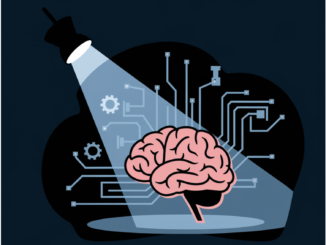
The previous CTO of OpenAI, Mira Murati, has revealed the establishment of Thinking Machines, a novel AI research and product enterprise.
With an objective to democratise AI accessibility and develop systems that are both adaptable and able to collaborate with humans, the startup is setting ambitious aspirations to redefine how Artificial intelligence is woven into daily activities and industries.
“We are constructing a future where everyone can access the knowledge and tools necessary to tailor Artificial intelligence to their particular needs and objectives,” the company clarifies.
Filling voids in the current AI environment
Thinking Machines seeks to tackle critical voids in the prevailing AI environment. While Artificial intelligence functionalities have evolved significantly, notable obstacles remain in ensuring these technologies are attainable and practical for widespread application.
At present, awareness regarding state-of-the-art AI systems is confined to a few exclusive research laboratories, which restricts public comprehension and stifles broader innovation. The company emphasizes that current systems are also difficult to adjust to individual preferences and values, a pivotal challenge for real-world implementation.
Thinking Machines envisions the remedy in developing Artificial intelligence systems that are more universally understood, adaptable, and proficient. The company intends to merge intellectual transparency, advanced infrastructure, and pioneering AI safety protocols to empower both researchers and end-users.
Murati’s crew possesses extensive expertise to support this initiative, including scientists, engineers, and technologists credited with developing some of the most utilised AI tools, such as OpenAI’s ChatGPT, Character.ai, and open-source frameworks like PyTorch and OpenAI Gym.
A human-oriented approach to AI
A fundamental pillar of the company’s ethos is collaboration. Thinking Machines intends to uphold a culture of openness by disseminating research papers, technical blog entries, and code with the broader AI community.
“Scientific advancement is a collective endeavor,” the company asserts. “We are convinced that we can most effectively enhance humanity’s grasp of AI by collaborating with the larger community of researchers and developers.”
This open research principle mirrors a broader pattern in the AI domain, where transparency and community involvement are increasingly recognised as catalysts for not only innovation but also societal confidence in AI technologies.
Unlike numerous organisations solely concentrated on developing autonomous Artificial intelligence, Thinking Machines is also strongly focusing on human-AI cooperation.
Multimodal systems – Artificial intelligence capable of functioning with various formats such as text, video, and images – are fundamental to this human-centric vision. These systems are crafted to engage effortlessly with individuals, aiding users in leveraging AI to meet specific objectives and tackle significant challenges.
The emphasis on personalisation also distinguishes Thinking Machines. The group imagines AI systems that transcend narrow-use applications, enabling diverse uses across domains ranging from scientific exploration to engineering and creative pursuits.
The enterprise shows particular interest in developing Artificial intelligence tools that adjust to individual skills and situations, granting users the ability to “make AI work for their distinctive needs and goals.”
Thinking Machines will emphasise robust foundations
While many Artificial intelligence startups are hurrying to launch systems, Thinking Machines aims to establish solid foundations. This is based on two fundamental pillars: model intelligence and quality infrastructure.
Murati’s team is creating cutting-edge AI models capable of pushing the limits in areas such as programming and scientific exploration. These advanced technologies could lead to groundbreaking applications, from discovering new scientific insights to achieving engineering advancements.
Likewise, the company is dedicated to designing efficient, secure, and user-friendly infrastructure to enhance productivity and support the upcoming generation of Artificial intelligence systems.
Rather than opting for shortcuts, Thinking Machines is adopting a careful, systematic strategy to optimise long-term impact.
Advanced multimodal capacities are another focal point. By merging modalities such as language, imagery, and sensory data, the company aims to construct systems that facilitate richer communication and deeper real-world integration.
Ethical Artificial intelligence through product-driven education
Thinking Machines also plans to intertwine research with product design, a strategy that not only informs innovation but also guarantees relevance and usability.
Products will propel iterative learning, allowing the team to gather insights from real-world application. Concurrently, real-world evaluations will further reinforce the company’s commitment to Artificial intelligence safety, integrating proactive research with thorough post-deployment scrutiny.
Murati’s group delineates three fundamental principles for enhancing AI safety:
Upholding a high safety standard to avert misuse while maintaining user freedoms.
Disseminating best practices within the industry for constructing secure Artificial intelligence systems.
Expediting external research on Artificial intelligence alignment by offering access to code, datasets, and model specifications.
The team also acknowledges that the most significant breakthroughs frequently arise from “rethinking our goals instead of merely optimising current metrics.”
By gauging real-world value, Thinking Machines aspires to create Artificial intelligence systems that truly benefit society across a broader spectrum of use cases.
Thinking Machines: A novel Artificial intelligence startup, steered by expertise
The initiation of Thinking Machines marks a new chapter for Mira Murati, who was instrumental in spearheading some of OpenAI’s most successful initiatives.
Murati’s extensive experience, alongside a team of exceptional Artificial intelligence creators, positions the new venture on stable ground to significantly influence the sector. By affirming a commitment to transparency, collaboration, and long-term vision, the startup may provide a remedy to common criticisms of the rapidly evolving Artificial intelligence landscape, ranging from opacity to ethical dilemmas.
The mission is unmistakable: to empower individuals across all industries to realise AI’s transformative potential—on their terms.
Discover additional upcoming enterprise technology events and webinars powered by TechForge here.








Be the first to comment